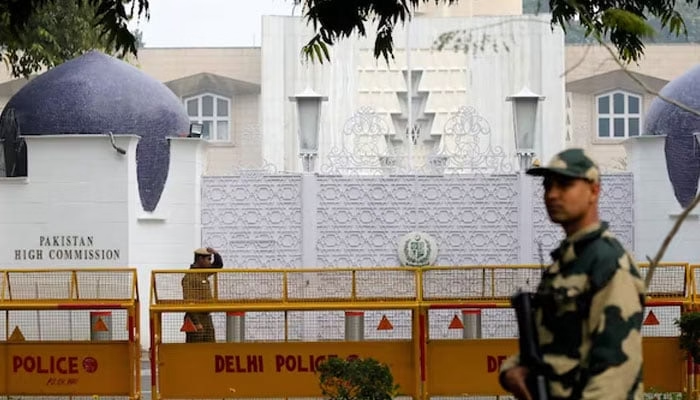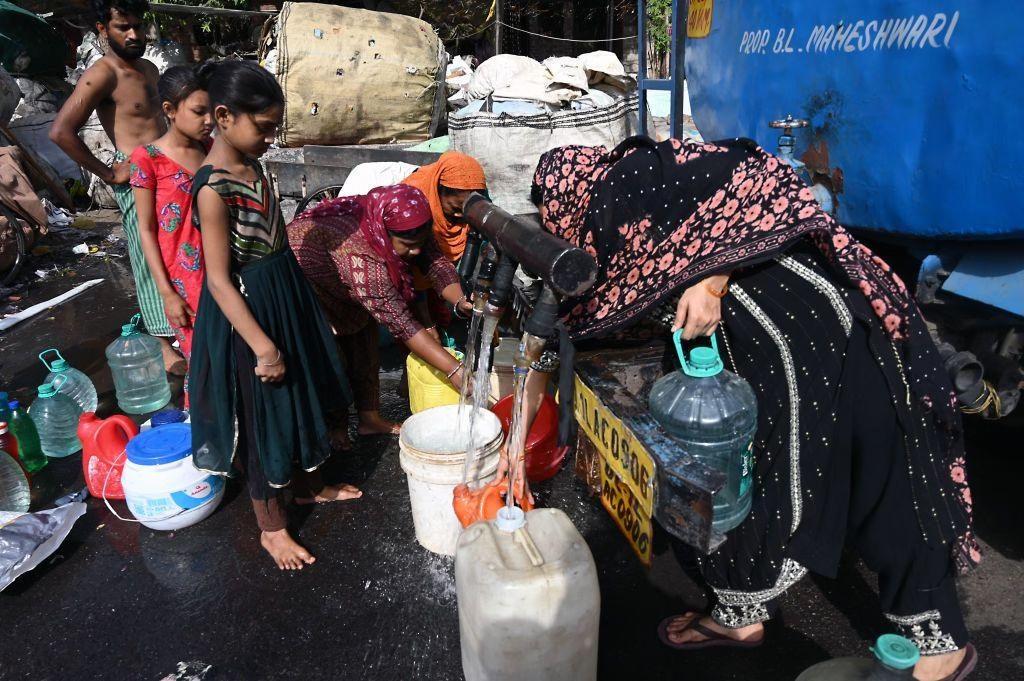The harassment of Pakistani diplomats in India has escalated in recent weeks, with reports revealing that at least four officials at the Pakistani High Commission in New Delhi have been served eviction notices before the expiry of their rental agreements. These developments, combined with disruptions in utilities and delays in visa extensions, have further strained the already tense relations between Islamabad and New Delhi.
Eviction Notices and Surveillance
According to sources, four Pakistani diplomats received eviction notices from their landlords despite having valid tenancy contracts. The issue has been compounded by what is described as constant surveillance, with diplomats reportedly monitored closely during their daily movements.
In addition, gas and internet services at their residences have been intermittently cut off, making living conditions increasingly difficult. This pattern of harassment of Pakistani diplomats in India has raised concerns over the violation of the Vienna Convention on Diplomatic Relations, which guarantees the safety and dignity of foreign diplomatic personnel.
Pending Visa Extensions for 17 Officials
The situation is further complicated by delays in the extension of Indian visas for 17 Pakistani staff members, including diplomats. Requests for these extensions were submitted three to five months ago to India’s Ministry of External Affairs, but approvals have yet to be granted.
Visa-related delays have been a recurring point of contention between the two countries, often seen as a political tool during periods of heightened bilateral tensions.
Disruption of Basic Services at the High Commission
The Pakistani High Commission in New Delhi has also faced disruptions to its essential services. The water supply to the mission has been cut off, and the delivery of Indian newspapers has been halted for more than six weeks. These measures, combined with surveillance and residential harassment, contribute to a broader pattern of diplomatic pressure.
Pakistani officials have formally reported these incidents to the Ministry of Foreign Affairs in Islamabad, highlighting the seriousness of the matter.
Escalating Tensions After May 2025 Conflict
The harassment of Pakistani diplomats in India comes in the wake of an intense 87-hour armed conflict between the two countries in May 2025. The clashes began when India launched cross-border strikes into Pakistan, claiming to target militants allegedly behind the Pahalgam attack in Indian Illegally Occupied Jammu and Kashmir (IIOJK).
In retaliation, Pakistan initiated Operation Bunyan-um-Marsoos, downing six Indian Air Force fighter jets — including three Rafale aircraft — and conducting counter-strikes across the border. The brief conflict left 40 civilians and 13 Pakistani armed forces personnel martyred.
Indus Waters Treaty Dispute
Adding to the tensions, the Indian government announced it was placing the Indus Waters Treaty (IWT) with Pakistan in abeyance. However, the Permanent Court of Arbitration recently ruled that India must allow the waters of the western rivers to flow freely for Pakistan’s unrestricted use, reaffirming Pakistan’s water rights under the treaty.
This decision came as a rare diplomatic win for Pakistan amid a broader backdrop of strained ties.
Diplomatic Norms and International Concerns
The alleged harassment of Pakistani diplomats in India raises important questions about adherence to international diplomatic norms. Under the Vienna Convention, host countries are obliged to ensure the safety, security, and dignity of foreign diplomats. Actions such as forced evictions, service disruptions, and surveillance undermine these obligations and can escalate into formal diplomatic protests or reciprocal measures.
Past incidents between India and Pakistan have shown that such tensions can quickly spiral, affecting not only diplomatic missions but also broader bilateral relations, trade, and cultural exchanges.
The Way Forward
For de-escalation to occur, both countries will need to prioritize diplomatic engagement over punitive measures. Analysts suggest that third-party mediation or quiet backchannel talks could help address immediate grievances, such as utility disruptions, eviction threats, and pending visas.
Moreover, ensuring adherence to diplomatic conventions is essential for maintaining functional channels of communication — especially between two nuclear-armed neighbors with a history of military confrontations.
The ongoing harassment of Pakistani diplomats in India reflects the deep mistrust currently defining Islamabad–New Delhi relations. With evictions, surveillance, and service cuts affecting the day-to-day functioning of Pakistan’s diplomatic staff, the situation risks worsening unless concrete steps are taken to restore normalcy.
Given the geopolitical stakes, safeguarding diplomatic norms is not just a matter of protocol — it is a necessity for regional stability. Whether through bilateral dialogue or international intervention, the coming months will determine if this episode becomes another flashpoint in South Asia’s troubled history or a turning point toward responsible diplomacy.



